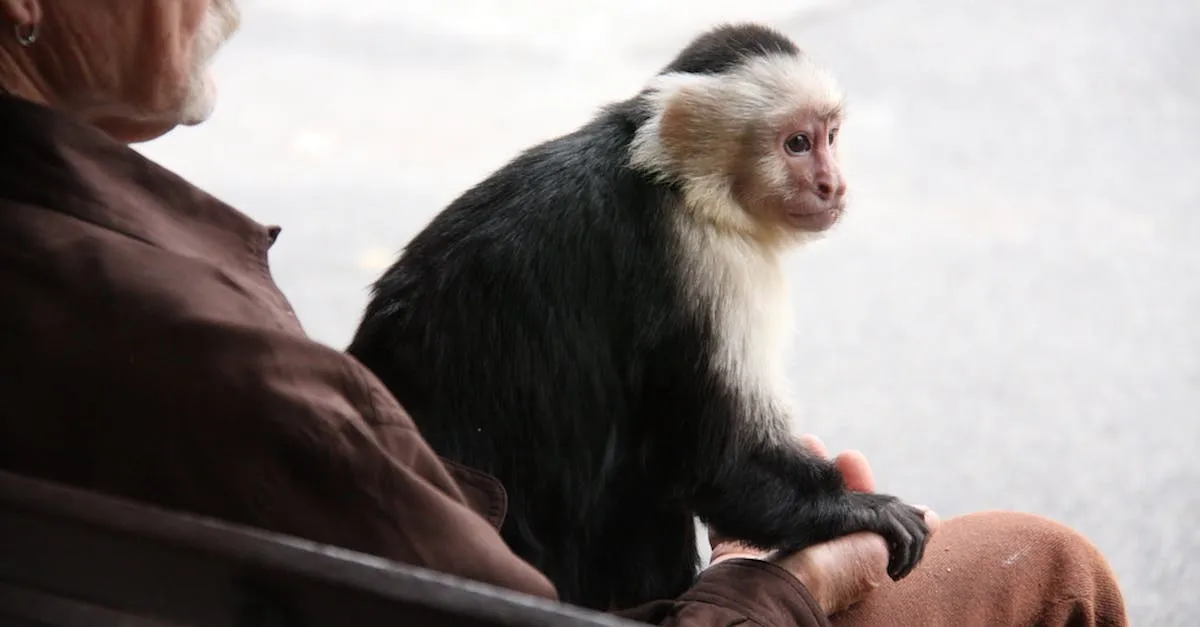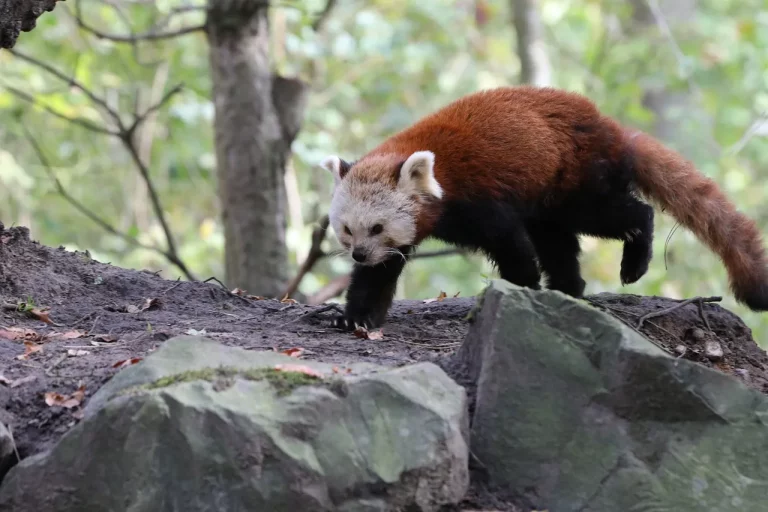Can You Have A Pet Monkey In Florida? A Comprehensive Guide
With its reputation for exotic and unusual pets, you may be wondering if it’s legal to keep monkeys as pets in Florida. The quick answer is yes, it is legal to own pet monkeys in Florida, but there are many important regulations and restrictions to consider first.
In this comprehensive guide, we will cover everything you need to know about legally owning monkeys in Florida, including permit requirements, allowed monkey species, proper housing and care, potential risks, and key laws to follow as a responsible exotic pet owner.
Florida Laws on Keeping Pet Monkeys
Florida has specific laws and regulations when it comes to keeping pet monkeys. It is important for prospective monkey owners to understand these laws to ensure compliance and the well-being of the animal.
Permit Requirements
In Florida, owning a pet monkey requires a permit. The Florida Fish and Wildlife Conservation Commission (FWC) is responsible for issuing these permits. The permits are necessary to ensure that the monkey is obtained legally and that the owner is able to provide appropriate care.
To obtain a permit, individuals must meet certain criteria set by the FWC. This includes providing proof of experience and knowledge in handling and caring for monkeys, as well as demonstrating that their living conditions are suitable for the animal.
The FWC may also require an inspection of the premises where the monkey will be kept.
It is important to note that permits are not issued for certain species of monkeys that are considered dangerous or pose a threat to public safety.
Allowed and Prohibited Species
The FWC has a list of allowed and prohibited species of monkeys that can be kept as pets in Florida. The list includes specific species that are classified as non-human primates.
Allowed species typically include smaller monkeys such as marmosets and capuchins. These monkeys are generally easier to handle and can adapt well to living in a domestic environment. It is important to research the specific needs and requirements of the chosen species to ensure proper care.
Prohibited species, on the other hand, include larger and more aggressive monkeys such as chimpanzees and baboons. These species are not allowed as pets due to their potential danger to humans and the difficulty in providing suitable care and environment for them.
For more detailed information on the allowed and prohibited species, individuals can refer to the official website of the FWC: https://myfwc.com/wildlifehabitats/nonnatives/mammals/non-human-primates/
It is important to always check with the FWC and follow their guidelines to ensure compliance with the laws and regulations regarding pet monkeys in Florida. Failure to do so can result in penalties and potential harm to the animal.
Housing and Care Considerations
When considering having a pet monkey in Florida, it is important to understand the housing and care requirements involved. Monkeys are intelligent and active animals that require a suitable living environment to thrive.
Proper Enclosure Size
One of the key considerations when housing a pet monkey is providing an adequate enclosure size. Monkeys need enough space to move around, climb, and exercise. The enclosure should be large enough to allow the monkey to exhibit natural behaviors and have room for different types of enrichment.
The specific enclosure size required will depend on the species of monkey. For example, smaller species like marmosets may require a smaller enclosure, while larger species like capuchins or macaques will need more space.
It is essential to research the specific requirements of the monkey species you are considering as a pet.
Diet and Enrichment Needs
In addition to proper housing, providing a balanced diet and enrichment is crucial for the well-being of a pet monkey. Monkeys have specific dietary needs that must be met to ensure their health. They require a varied diet consisting of fruits, vegetables, nuts, and protein sources.
Enrichment is also essential to prevent boredom and stimulate the monkey’s mind. This can include providing toys, puzzles, and opportunities for social interaction. Monkeys are highly intelligent animals that require mental stimulation and physical activity to prevent behavioral issues that can arise from boredom or lack of stimulation.
Providing Veterinary Care
Just like any other pet, monkeys need regular veterinary care to ensure their health and well-being. It is crucial to find a veterinarian experienced in exotic animal care, particularly in monkey species.
Regular check-ups, vaccinations, and preventative measures are essential to keep your pet monkey healthy and prevent the spread of zoonotic diseases.
It is also important to note that some monkey species can carry certain diseases that can be transmitted to humans. Therefore, proper hygiene practices, such as frequent handwashing, are crucial when handling a pet monkey.
When considering having a pet monkey in Florida, understanding the housing and care considerations is vital for the welfare of the animal. It is advisable to consult with experts, such as primate sanctuaries or organizations specializing in primate care, to ensure you can provide the necessary environment and care for a pet monkey.
Public Health and Safety Risks
Disease Transmission
Pet monkeys can pose a significant risk to public health due to the potential transmission of diseases. Monkeys are known carriers of various zoonotic diseases, which can be transmitted to humans through bites, scratches, or even through close contact.
Some of these diseases include herpes B virus, tuberculosis, and hepatitis. These diseases can have serious consequences for human health, and it is crucial to consider the potential risks before owning a pet monkey.
Aggressive Behavior
Another major concern when it comes to owning a pet monkey is their potential for aggressive behavior. Monkeys are wild animals, and even if they are raised in captivity, they still retain their natural instincts.
They can become unpredictable and display aggressive behavior, especially as they reach sexual maturity. This can put both the owner and others at risk of injury. It’s important to remember that monkeys are not domesticated animals and may not be suitable as pets.
Escaped Monkeys
Escaped monkeys pose a significant risk to public safety. In Florida, where the climate is suitable for a variety of monkey species, there have been instances of monkeys escaping and establishing feral populations.
These feral monkeys can cause damage to crops, transmit diseases to other animals, and even pose a threat to humans. It is essential to prevent the escape of pet monkeys to protect both their welfare and the well-being of the surrounding community.
According to the Florida Fish and Wildlife Conservation Commission, it is illegal to release non-native wildlife, including monkeys, into the wild. Violators can face legal consequences, including fines and imprisonment.
The potential risks associated with owning a pet monkey should not be taken lightly, and it is crucial to consider the impact on public health and safety before considering keeping a monkey as a pet.
For more information on the risks associated with owning a pet monkey in Florida, you can visit the official website of the Florida Fish and Wildlife Conservation Commission at https://myfwc.com/.
Purchasing a Pet Monkey
Before considering purchasing a pet monkey in Florida, it is important to understand the process and responsibilities that come with owning one. This guide will provide you with valuable information on how to purchase a pet monkey, including sourcing reputable breeders, understanding the costs of ownership, and importing monkeys.
Sourcing Reputable Breeders
When it comes to purchasing a pet monkey, it is crucial to find a reputable breeder. This ensures that you are getting a healthy and well-cared-for monkey. One way to find reputable breeders is to research online and check for recommendations from trusted sources such as primate sanctuaries or organizations dedicated to animal welfare.
It is important to visit the breeder’s facility in person to ensure that the monkeys are kept in suitable conditions and receive proper care.
Costs of Ownership
It is essential to consider the costs associated with owning a pet monkey before making a purchase. Monkeys require a significant financial commitment, including the initial purchase cost, which can range from several thousand to tens of thousands of dollars depending on the species.
Additionally, ongoing expenses such as food, veterinary care, enclosure maintenance, and enrichment activities should be taken into account. It is recommended to consult with current monkey owners or experts to get a better understanding of the long-term costs involved.
Importing Monkeys
Importing a monkey from another state or country may be an option for those looking for a specific species that is not readily available in Florida. However, it is important to note that importing monkeys is subject to strict regulations and permits.
The United States Fish and Wildlife Service (USFWS) regulates the importation and interstate transportation of monkeys under the Endangered Species Act. It is crucial to thoroughly research and comply with all legal requirements and obtain the necessary permits before importing a monkey.
Being a Responsible Exotic Pet Owner
Having a pet monkey in Florida can be a unique and rewarding experience, but it also comes with great responsibility. As an exotic pet owner, it is crucial to prioritize the well-being and proper care of your primate companion. Here are some important considerations to keep in mind:
Commitment to Proper Care
Monkeys are intelligent and social animals that require a significant amount of attention, mental stimulation, and physical activity. It is essential to provide them with a spacious and enriching environment that mimics their natural habitat.
Regular veterinary check-ups, a balanced diet, and proper hygiene are also vital for their overall health and well-being. Remember, owning a pet monkey is a long-term commitment that requires time, effort, and resources.
Consider Joining A Primate Association
Joining a primate association or organization can be immensely helpful in ensuring the best care for your pet monkey. These associations provide valuable resources, support, and guidance to exotic pet owners.
They offer educational materials, training programs, and access to experienced professionals who can help you navigate the unique challenges of owning a monkey. Additionally, being part of a community of like-minded individuals can provide a sense of belonging and support.
Have an Emergency Plan
Having an emergency plan in place is crucial for any pet owner, especially when it comes to exotic animals. Make sure you have a list of emergency contacts, including veterinarians who specialize in primate care.
It is also wise to familiarize yourself with the nearest animal hospitals that can provide immediate assistance if needed. Additionally, consider investing in pet insurance that covers emergencies and unexpected medical expenses.
Being prepared can make all the difference in ensuring the well-being and safety of your pet monkey.
Conclusion
While allowed in Florida, owning pet monkeys requires extensive research, preparation and resources. We hope this guide provided a comprehensive overview of legalities, proper care, costs, risks and responsible pet ownership considerations to help you make an informed decision.








